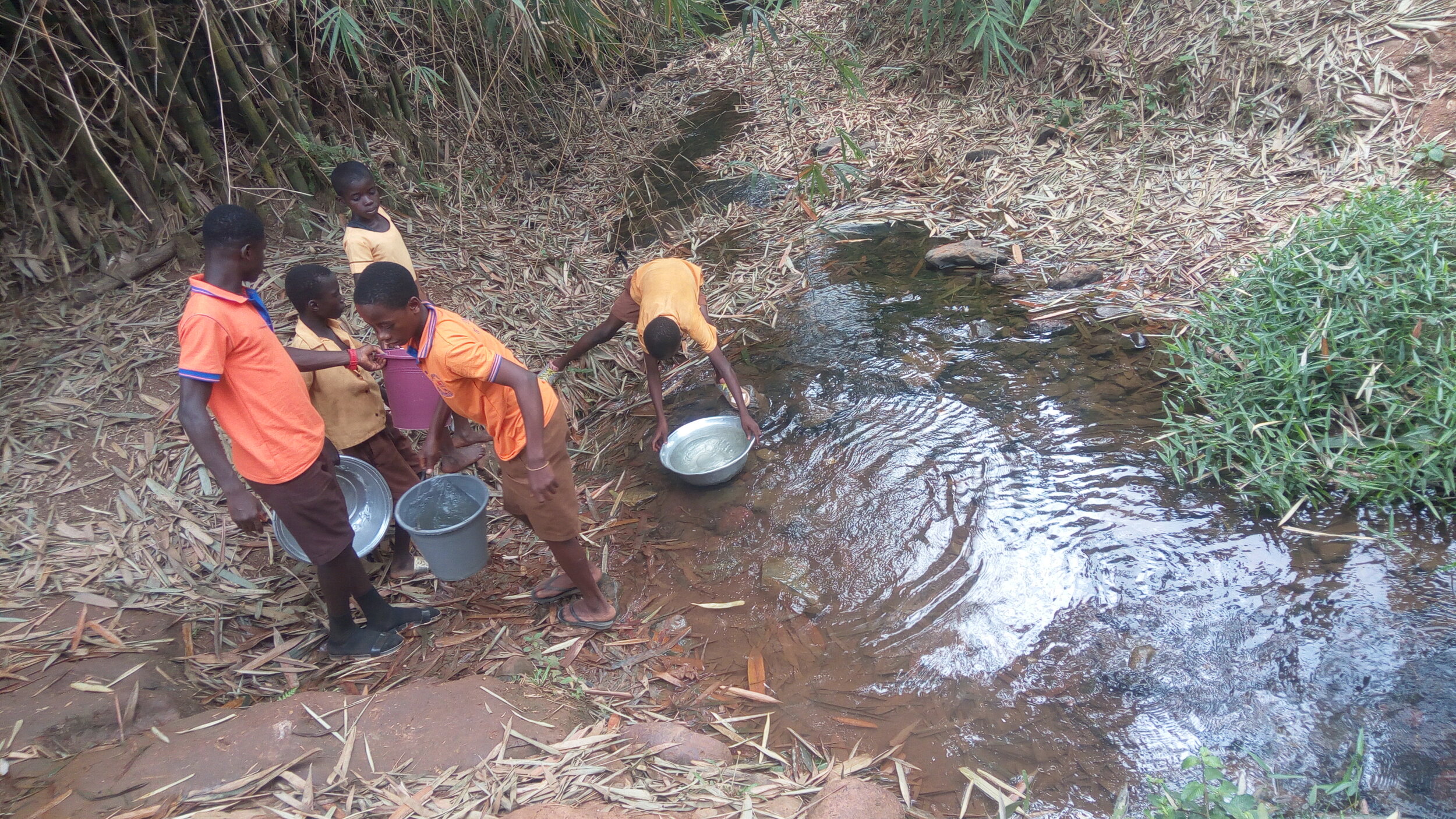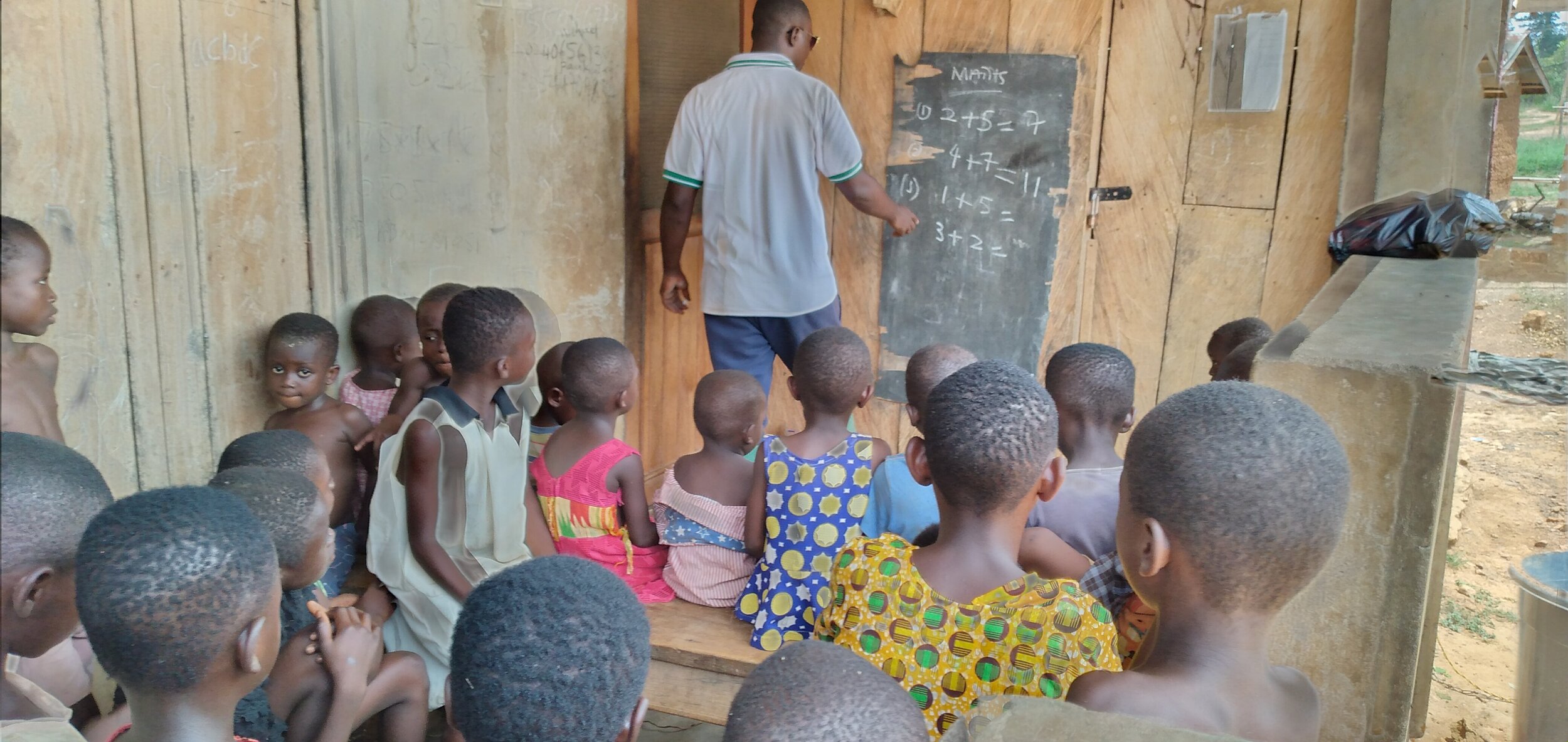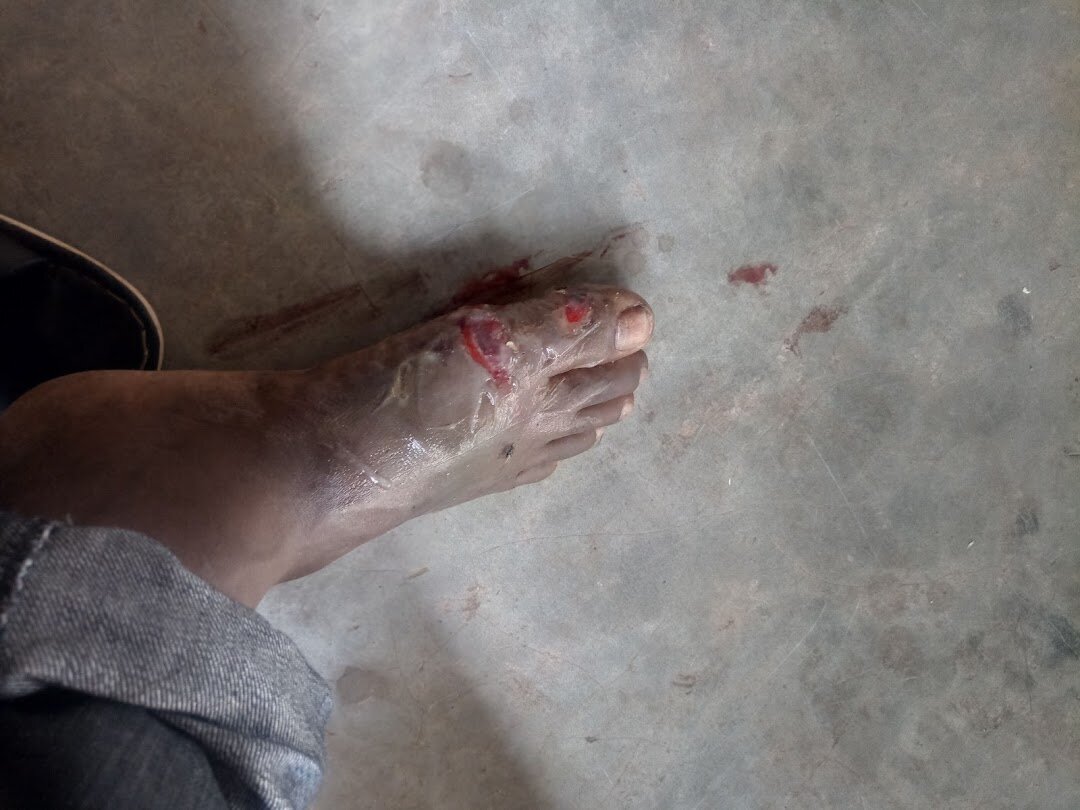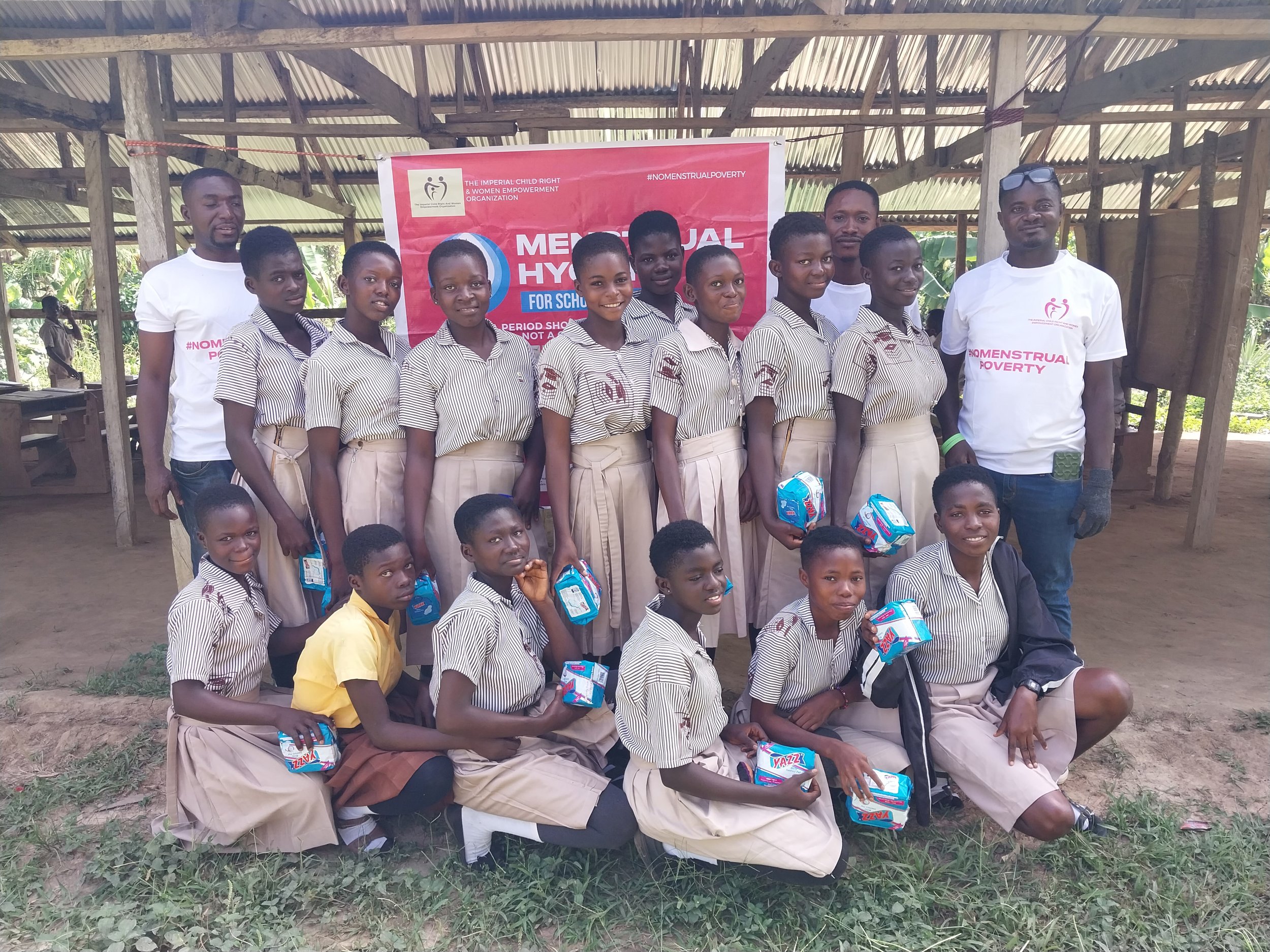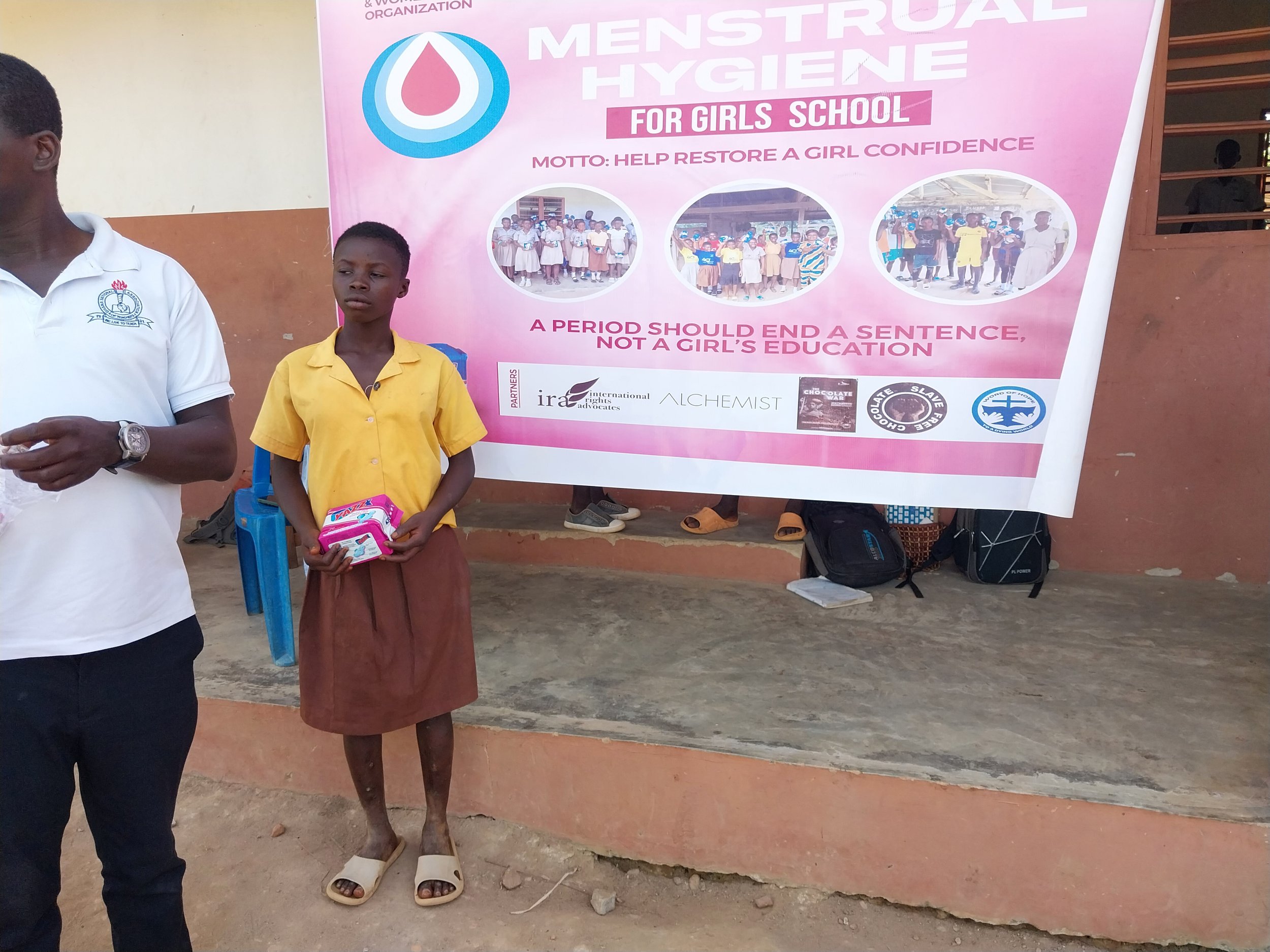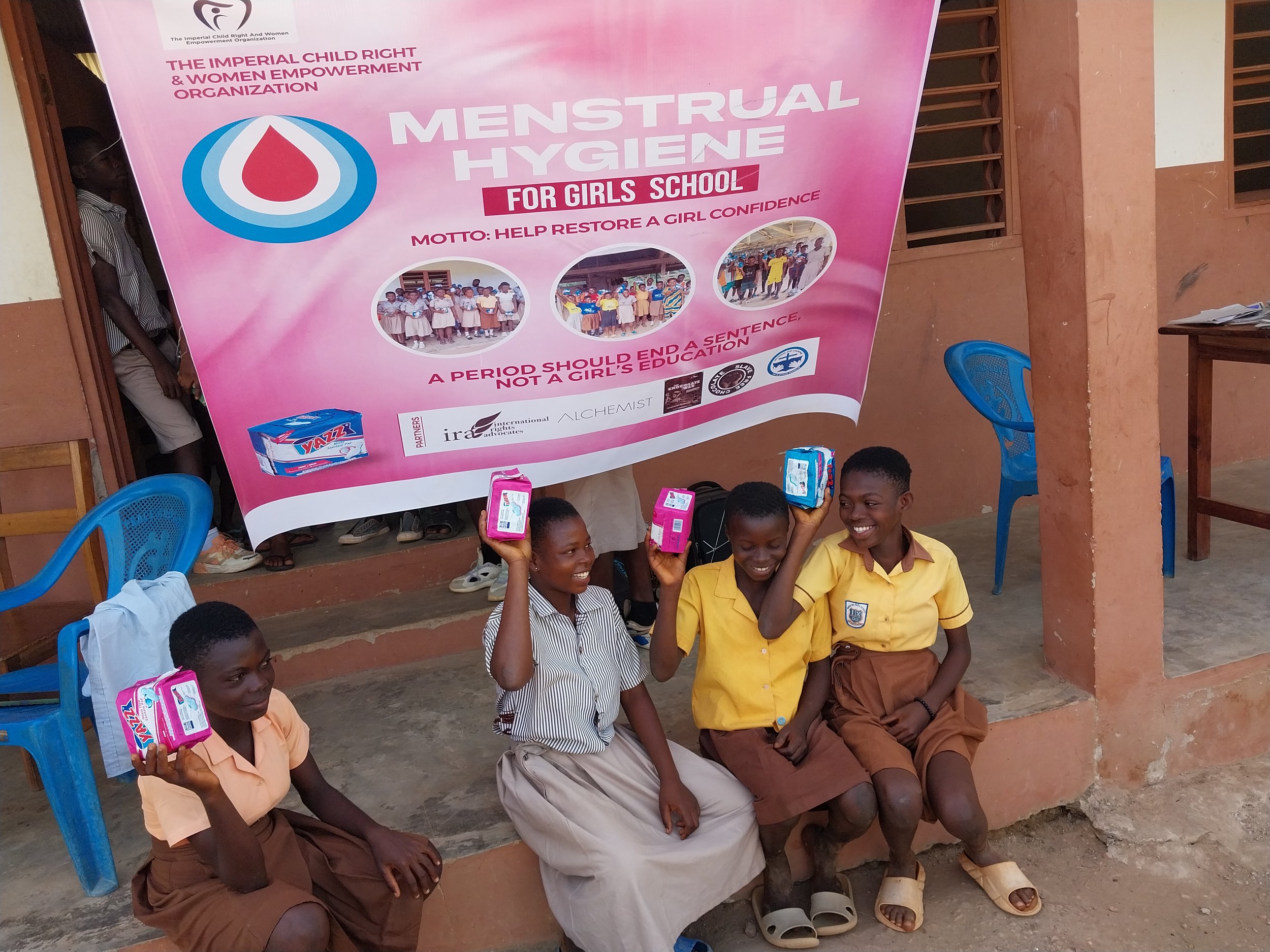People in Chocolate
This page is designated for the diverse set of individuals such as thought leaders, business leaders, and activists that work around the chocolate industry. Whether you are a student, educator or journalist, we encourage you to use these interviews as part of your own work.
Interview with
Bright Adjeh Debrah
a Sustainability Officer working in the Ghana Cacao Framing Sector.
1.Tell me about yourself, where are you from?
I am Bright Debrah Adjei from Ghana and a degree holder in Agriculture, completed university in 2005. I am married with 2 kids.
2. How did you get involved with cacao?
In March 2014, I was employed by Ecom Ghana as a Sustainability Officer in my working district. That was when I got involved in cacao.
3. What motivated you to get involved with these children?
Children are the future generation. Without proper education, training and upbringing, there will be no future for them. I was lucky to have parents who believed in education, so they took me to school. Every child deserves access to quality education. No child deserves to be left out. Unfortunately, when I got to my working district, that was not the case. Most communities don’t even have access to schools. I got sad every time I visited my communities and saw the children walking long distances to fetch water. These were the children who would be taking over those communities in some years to come. So, I always asked myself what impact they would have on their communities and the environment when that time came.
4. What changes have you seen in the industry since the big companies signed the Harkin Engle Protocol 20 years ago?
From an honest point of view, I haven't seen any positive change since the big companies signed the Harkin Engle Protocol 20 years ago. The only change is that the living conditions of the cacao farmers have worsen. I think the intention was not to help the cacao farmers but for themselves. Take for example the input credit scheme. The aim is to sell huge quantities to the farmers all in the name of helping them. They make so much money from the sale of chemicals to the farmers without taking into consideration the dire effects on their farms and the ecosystem. Farmers are forced to take the inputs on credit, cashing in later when cacao season begins. So, you see, from afar, it may look like they're helping the farmers, but in reality, they're keeping them impoverished and in turn making monies for themselves. The big cacao companies are the biggest contributors to the destroying of the farms of the farmers. That's why farmers keep farming new lands with the hope of making something out of it. That's the honest reality. My heart bleeds for the ordinary cacao farmer.
5. What is your message to the consumers in the west?
My message to the consumers in the west is that the primary producers of cacao here live a miserable live. They do all the hard work but have nothing to show for the work done. I can honestly tell them that, the cacao farmers are forced to use their children in their farms because they don’t earn enough to hire laborers to work in their farms. They have nothing to show for the long years they have been into cacao farming.
6. If you had the power to change things, what would you do?
6. If you had the power to change things, what would you do?
If I had the power to change things, I would change the ways interventions are handled by the buying companies and the government. Good interventions that seek to alleviate cacao farmers out of poverty are those I would do. When you have people, whose intentions are not cacao farmer or community focused but for their own personal gain, that becomes a problem. The big buying companies only think about how their interventions would get them more beans to buy and the government of the day also think about how they are going to score political points. Additional livelihoods tailored on focusing on the capacity of the youth in the perspective on income generation for the youths in every household. Target them into growing crops with short term maturity like; maize, okra, soybean, rice, etc. Policies that aim at building and sustaining robust agricultural extension systems that have at the centre, ecosystem resilience and sustainability, specifically, there is the need to review agricultural extension policies to refocus them on how to expand agricultural production without compromising the biological. Most of time, funds for interventions end up in the pockets of some people who are supposed to do it. This in turn leave the cacao farmers more impoverished; that's why the living conditions of the cacao farmers deteriorate day in day out. I would say, interventions from the chocolate makers should not be channeled through the government and the buying companies, but through committed people.
7. What is your message to the big cocoa companies?
My message to the big cocoa companies is that they exist because of the ordinary cacao farmers. Therefore, if they take good care of the cacao farmers, they will also take good care of them and their companies. They should not pay lip services to the farmers and make it seem like they are doing the farmers some sort of favor. They should take the cacao farmers more seriously than their companies.
8. What makes you happy?
What makes me happy is how I am able to help the cacao farmers in my own small way. I am always satisfied and fulfilled when I get back from some of the communities, I work in. The joy is overwhelming when you see how the kids welcome me with joyful shouts when I get to the communities. I just wished I could do more for them.
Introducing ICRAWE
Imperial Child Rights and Women Empowerment (ICRAWE) is a young non-governmental, social development, project management organization that is based in Ghana. ICRAWE, over the last few years, has focused on lessening the burdens of cocoa farmers in rural communities and helping more children go to school. The organization has a pool of experienced research and impact evaluation experts, development consultants, and associates with a wide range of expertise in designing and managing projects, conducting research, impact evaluations, and analyzing data at different levels and across various sectors.
VISION
Dedicated to the vision of a society wherein children are allowed to find their identity, realize their worth, and develop to their full potential in a safe and supportive environment.
MISION
Our mission is to promote and protect the inherent dignity of every child, to draw attention to the fundamental needs of children, and to provide assistance to help children develop to their full potential.
Interview with Hon. Nelson Donkor owner of Shahamana Chocolate.
Mr. Donkor is a former child slave who escaped and is now running his own chocolate company. It is extremely important that we support people and companies like his as it is an avenue the growers can use to help bring them out of abject poverty.
1. Tell me about yourself, where are you from? I am Nelson Donkor. A young cocoa farmer from Tepa, in the Ahafo Ano North Municipal of the Ashanti Region of Ghana. I am an elected Assemblymember (a councilor) for the Kyekyewere electoral area. I was voted into power in 2015 and re-elected again in 2019. It’s a volunteer position and I rule over 2000 people. The people are mainly cocoa farmers.
2. How did you get involved with cacao? I will say that I got into cocoa from childhood. I was forced to work as a child and considered illegal child labor. I was rescued and sent to the city where I was able to start school. I got back again into cocoa farming in 2012 when my dad died. I have been an active cocoa farmer since then.
3. What motivated you to get start your own chocolate company? I had the chance to taste chocolate in 2012 when some Swedish friends visited my farm. They brought the chocolate all the way from Sweden. Before that meeting, I didn't know what the beans were used for. I became interested in chocolate at that point. A German friend, Marie Schlemm of Tao of Chocolate, inspired and convinced me to make chocolate from my own cocoa beans. She organized a fundraising effort and bought me a 5kg grinder. I also learned that adding value to the cocoa beans is more profitable than selling the raw beans.
4. What changes have you seen in the industry since the big companies signed the Harkin Engle Protocol 20 years ago? I haven’t seen any change in the industry since the big companies signed the Harkin Engle Protocol 20 years ago. I think they have changed their tactics of robbing the farmers.
5. What is your message to the consumers in the west? I want the consumers in the west to buy directly from farmers or cooperative chocolate makers instead of the big companies.
6. If you had the power to change things, what would you do? If I have the power to change things, I will make sure cocoa farmers get fair prices for their beans. Also make sure farmers sell their beans directly to buyers instead of selling to Cocobod, the government cocoa regulator. Additionally, I would like to see those that participate in trafficking and the worst forms of child labor prosecuted and jailed.
7. What is your message to the big cocoa companies? I want the big companies to know that we the cocoa farmers are going through a lot of hardship so they should pay us a fair price for our beans. Our lives have to be better for ours to be able to continue producing cocoa beans. I have learned that farmers use children in their farms because they want cheap labour. With fair prices, child slavery will be a thing of the past.
8. What makes you happy? Seeing rescued children in the classroom makes me happy.
Kristy Liessle
Interview with Kristy Liessle author of Cocoa
1. What is your academic background?
It’s varied! As an undergrad, I studied Psychology, and then I did a master’s in Women’s
Studies. That degree was humanities-based, and got me interested in ideas about
modernity—for example, how we use images of gender or race to imply that something
is modern or not. That has impacted my work through today. After that, I took a few
years to travel and work in Africa, and then went back to graduate school. I did a
master’s in Public Administration, and almost went from there to work in international
development. But I decided to stay on at the University of Washington, and completed
my PhD in Gender, Women, and Sexuality Studies. I had written my MPA thesis on water
policy in West Africa, so for my doctoral fieldwork, I was going to study the impact of
privatized water utilities in Senegal. But then I had the opportunity to change my focus
to chocolate. That was about eighteen years ago, and I’ve never looked back! I’ve
studied the politics, economics, and cultures of cocoa and chocolate ever since, mostly
in West Africa, although I have also researched and written about cocoa in the
Americas, Caribbean, and Asia-Pacific, and craft chocolate in the US and Europe.
2. How did you get interested in cocoa in the first place?
Well, I’ve always loved chocolate more than any other food. But it wasn’t until I was in
my PhD program that I realized I could be interested in cocoa as a researcher. When I
moved to Seattle in 2000, I started to shop at farmers’ markets and the regional co-op,
PCC. As a consumer, I was learning about food sourcing, seasonality, and the supply
chain. But of course, cocoa is not local to the Pacific Northwest, so I wasn’t learning
about chocolate by shopping for it at a farmers’ market. This was before the craft
chocolate movement, so I wasn’t coming across bars that could teach me anything from
reading the wrappers. I was on the verge of heading to Senegal to do my water
fieldwork, when I had this opportunity to travel and follow chocolate around the world,
eating it in different places, understanding where it came from. The travel opportunity
was unrelated to my studies, but my doctoral committee chair said to me, “Why don’t
you study chocolate instead of water?” And in that moment, I saw chocolate with new
eyes. I realized that it was not only a food I loved, but a serious thing to learn about.
That was a big revelation for me, and cocoa has kept my interest ever since.
3. As your book Cocoa is very popular among small craft chocolate makers. How does
this book help the budding chocolate maker?
That’s a great question. I do address the steps of chocolate making in Cocoa, but it’s not
a technical guide. It’s a book about the geopolitics of cocoa, and other kinds of
politics—the gender politics of a cocoa farming household, for example, or the politics
behind how organizations “rate” chocolate flavor. Cocoa shows how industry politics
work at different levels. Craft chocolate makers tend to invest a lot into understanding
their own supply chains. My hope would be that a craft maker who wanted to
understand the industry beyond their own experiences would pick up my book. Craft
makers will obviously know their own supply chains better than I ever will. But I think
reading Cocoa could shed light on how the industry works in other places where a
maker hasn’t sourced beans, or visited personally (especially West Africa). It would help
a craft chocolate maker put into broader perspective the politics they may be dealing
with in their own value chain, and learn something about contexts they don’t work in.
4. You recently moved to Ghana, what impacted your decision to move there?
I have been in and out of West Africa for work since the late 1990s, so this is a familiar
part of the world for me, and one that I do love. Ghana is the world’s second-largest
cocoa producer, and ever since my research has focused on chocolate, I have returned
here for fieldwork. In 2005, I lived in Ghana for half a year, so got to understand the
cocoa industry here very well. Right around the time that Cocoa was published, I
decided to move out of full-time teaching at the University of Washington Bothell,
where I had become faculty after my PhD. I had written Cocoa while teaching, which
was challenging, and I wanted to create space in my professional life for other
opportunities. So I left my teaching role and moved to Ghana. It was a great decision, as
I’ve been able to take on interesting research projects that require a lot of fieldwork,
which is much easier to organize when living here. It’s also opened my eyes to the
changing market dynamics in West Africa for chocolate. Because I live here, I see things
on a daily basis, as a shopper, as a consumer of news and local services. So that has led
to a lot of new learnings about Ghana’s cocoa and chocolate markets.
5. Can you tell us about the work are you doing in Ghana?
I am working on three things. One is a new book, on Africa’s contributions to global
chocolate. It will share stories and experiences of the women and men in Africa who
make chocolate possible. So that takes a lot of fieldwork, some of it on cocoa farms and
some of it with chocolate makers, and I enjoy that very much. From this same research, I
publish shorter pieces, such as the series, “I am a cocoa farmer,” for Confectionery
News. The second thing I do here for work is research or trainings as a consultant, for
companies or NGOs working in cocoa. For example, I recently led a cocoa supply chain
training for Oxfam Ghana, and completed a research project with Kuapa Kokoo for
Divine Chocolate, on cocoa tenant farmer labor rights. We’ll be sharing the results of
that labor rights research soon. Finally, I am co-director of the Cocoapreneurship
Institute of Ghana, which I co-founded with Moutia Murheb. CIG supports
entrepreneurs working at any stage of the cocoa value chain in West Africa. We do
trainings, events, and activities that help SMEs and producer organizations to innovate
and scale up. So it’s pretty busy here!
6. Is there a movement to bring the means of production to the cocoa growing
communities in Ghana and Côte d’Ivorie?
I think more in Ivory Coast than in Ghana, where the regulatory environment allows for
local value addition more freely. Here in Ghana, we do have lots of artisans, bean to bar
and liquor to bar, confectioners, makers of other types of cocoa products, but they are
mostly working in the cities and are not farming cocoa themselves. All of them do their
best to invest in farming communities, so in that way cocoa growers do benefit from the
value addition. But there isn’t a movement per se to have cocoa farmers shift to adding
value to their beans. It’s logistically extremely challenging, due to lack of infrastructure
in rural areas. Also in Ghana the regulator, Ghana Cocoa Board, does not support that at
all. In Ivory Coast, you see more instances of chocolate making in rural areas, for
example the work supported by Project Hope & Fairness.
7. How will this benefit the cocoa growing community?
This is a complex question, thank you for asking it. In the case of local artisans investing
in farmers, the benefits are direct to the cocoa growing community. The chocolate
entrepreneurs here in West Africa know where their cocoa comes from, they
understand farmers’ needs and farmers can make direct requests of them. So there is a
dialogue between chocolate maker or confectioner, and cocoa farmer, that I believe
benefits the farming communities. Someone is listening to the farmers, and doing their
best to respond to their needs. As for value addition by farmers, like I said it doesn’t
happen very often, so I don’t see a large-scale benefit there. Maybe it will come in
future – we can hope for that.
8. What avenue should the chocolate companies take to end the Worst Forms of Child
Labor in the industry?
Based on what cocoa farmers have said to me over my years of research, I believe the
best thing chocolate companies can do is listen to the farmers. The farmers know their
situation better than anyone else, and their challenges around child labor are specific
and varied. As farmers have expressed it to me, they need for chocolate companies to
come in and ask them what their challenges are, and respond to their particular needs.
Not every child involved in the worst forms of labor is there for the same reason; even
the same child might have to do that labor over time for different reasons. And the only
way anyone can understand that is to sit down with the farmer and listen to her or him,
to hear without judgment or preconceived solution what they need to help those children into a better situation.
